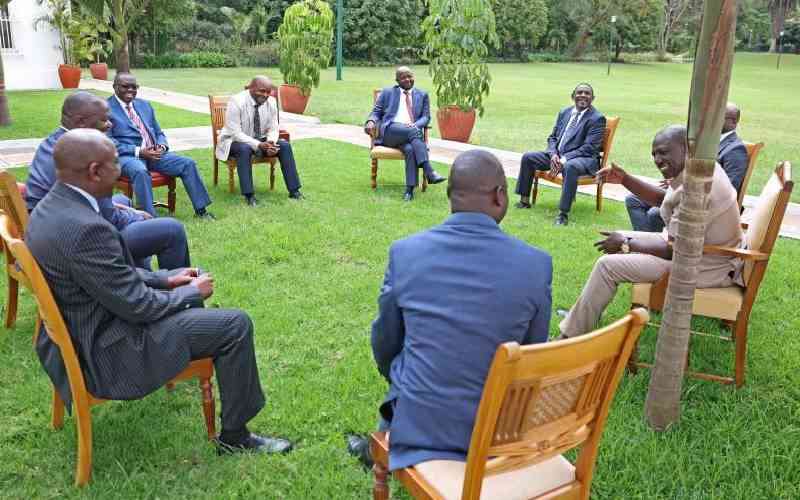×
The Standard e-Paper
Kenya’s Boldest Voice

When President William Ruto hosted ODM rebel MPs for lunch at State House in Nairobi September 13 2023. [File, Standard]
Whatever President William Ruto wants, he gets, thanks to the firm grip he has on the bicameral parliament, a body fashioned to check the excesses of the Executive.